Amy H. Sturgis's Blog, page 2
June 18, 2025
Will you join me in Panem?
My “The Hunger Games” module with SPACE (Signum Portals for Adult Continuing Education) online via Signum University is currently a candidate for September 2025. This is a proposed first module of five, one for each of the five Hunger Games novels by Suzanne Collins. Each week will include one recorded lecture and one live discussion section. Voting runs through August 1. I hope you will join us as we explore the lessons we may learn from Panem.
May the odds be ever in our favor!

June 11, 2025
My latest “Looking Back on Genre History”
StarShipSofa 758 Pedro Iniguez
On my latest “Looking Back on Genre History” segment on the StarShipSofa (Episode 758), I discuss science fiction, nuclear weapons, and the ongoing relevance of the classic Level 7 by Mordecai Roshwald.
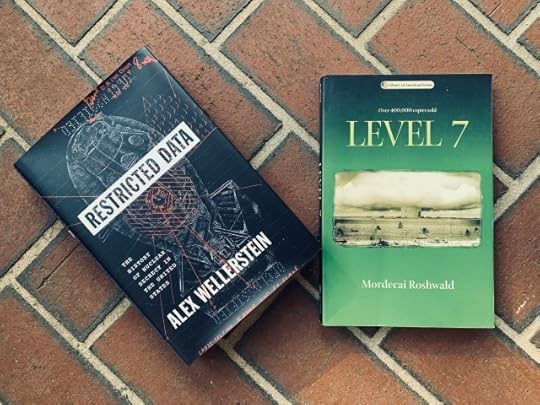
May 19, 2025
Join me in June 2025!
June is almost here! Next month I will be offering my month-long “Meet The Last Man” module with SPACE (Signum Portals for Adult Continuing Education) online via Signum University.
Mary Shelley’s novel is one of the most relevant books we can read right now, and I can’t wait to discuss it with students!
Watch the teaser here:
More information is available here.
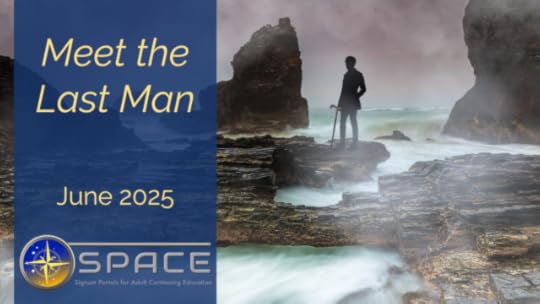 ALT
ALT
May 15, 2025
New “Looking Back on Genre History”
On my latest “Looking Back on Genre History” segment on the StarShipSofa podcast (Episode 756), I discuss two pioneering dystopian novels published fifty years apart, works with much to say to each other and to us in 2025. Here is the link!
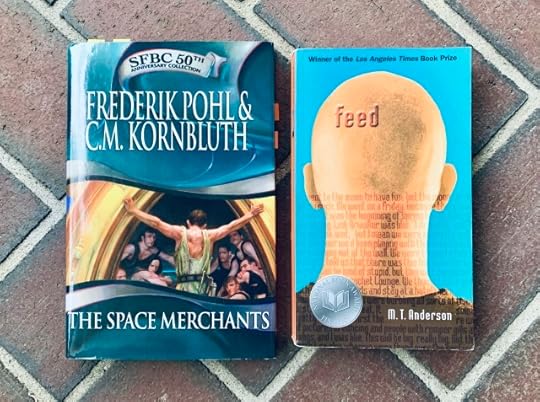
May 12, 2025
Updated!
Dark Academia Works Inspired by True Crime Cases?Hello, all! I am looking for recommendations of Dark Academia works (novels, short stories, films, television series) based on true crime. I would be grateful for any suggestions for my list. Thank you!
I am intentionally casting my net widely, defining the Dark Academic genre (as opposed to the aesthetic) as one that focuses on an academic setting and educational experience, employs Gothic modes of storytelling, cultivates a dark mood by contemplating the subject of death, and offers critique for interrogating imbalances and abuses of power.*
ALT
Below the cut is my current list of Dark Academia Works Inspired by True Crime Cases. All suggestions are welcome!
Dark Academia Works Inspired/Informed by True Crime Cases
Note 1: “True crime” is defined here as a specific case (for example, a murder or missing person’s case), not as a larger historical event (for example, the Salem Witch Trials or the Opium Wars) or an amalgam of cases (for example, general hazing in fraternities).
Note 2: This list is in chronological order based on the true crime case.
Note 3: Some works that aren’t fully DA but incorporate DA sections are included.TRUE CRIME: 1897 disappearance of student Bertha Mellish from Mount Holyoke College
DA novels:
The Button Field by Gail Husch (2014)
Killingly by Katharine Beutner (2023)TRUE CRIME: 1924 killing of Bobby Franks by University of Chicago students Nathan Leopold and Richard Loeb
DA Novels:
Compulsion by Meyer Levin (1956)
Nothing but the Night by James Yaffe (1957)
Little Brother Fate by Mary-Carter Roberts (1957)
The Secret History by Donna Tartt (1992)
These Violent Delights by Micah Nemerever (2020)
Hollow Fires by Samira Ahmed (2022)
Jazzed by Jill Dearman (2022)
DA films:
Rope (1948), Compulsion (1959), and Murder by Numbers (2002)TRUE CRIME: 1932 kidnapping and killing of Charles Lindbergh, Jr.; 1933 kidnapping and killing of Brooke Hart; and 1932-1934 crime spree of Bonnie Parker and Clyde Barrow
DA novels:
Truly Devious books by Maureen Johnson (especially the first trilogy, 2018-2020)TRUE CRIME: 1944 killing of David Kammerer by Columbia University student Lucien Carr
DA film:
Kill Your Darlings (2013)TRUE CRIME: 1946 disappearance of student Paula Jean Welden from Bennington College
DA novels:
Hangsaman by Shirley Jackson (1951)
Last Seen Wearing by Hillary Waugh (1952)
The Secret History by Donna Tartt (1992)
Shirley by Susan Scarf Merrell (2014)
Quantum Girl Theory by Erin Kate Ryan (2022)
DA film:
Shirley (2020)TRUE CRIME: 1973 killing of student Cynthia Hellman at Randolph-Macon Women’s College
DA novel:
Good Girls Lie by J.T. Ellison (2019)TRUE CRIME: 1978 killing of students Margaret Bowman and Lisa Levy and attack of students Kathy Kleiner and Karen Chandler by Ted Bundy at Florida State University
DA novel:
Bright Young Women by Jessica Knoll (2023)TRUE CRIME: 1985 killing of Derek and Nancy Haysom by University of Virginia students Elizabeth Haysom and Jens Söring
DA novel:
With a Kiss We Die by L.R. Dorn (2023)TRUE CRIME: 1999 killing of student Hae Min Lee from Woodlawn High School (by Adnan Syed? debated)
DA novel:
I Have Some Questions for You by Rebecca Makkai (2023)TRUE CRIME: 2022 killing of students Madison Mogen, Kaylee Goncalves, Xana Kernodle, and Ethan Chapin from the University of Idaho (by Washington State University student Bryan Kohberger? currently awaiting trial)
DA novel:
This Book Will Bury Me by Ashley Winstead (2025)*(I go into this definition in further detail in my segment here on the StarShipSofa podcast, my graduate course on Dark Academia, and my 2023 academic essay “Dark Arts and Secret Histories: Investigating Dark Academia.”)
Updated!
April 16, 2025
New “Looking Back on Genre History”
On my latest “Looking Back on Genre History” segment on the StarShipSofa podcast (Episode 754), I discuss (in a spoiler-free way!) Sunrise on the Reaping by Suzanne Collins, intellectual history, and genre references. Here is the link!
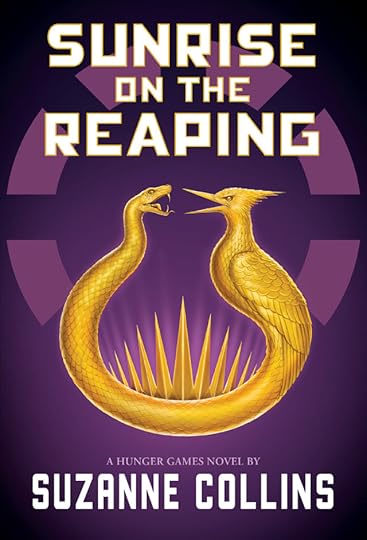 ALT
ALT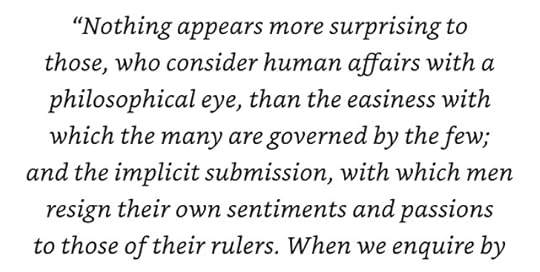 ALT
ALT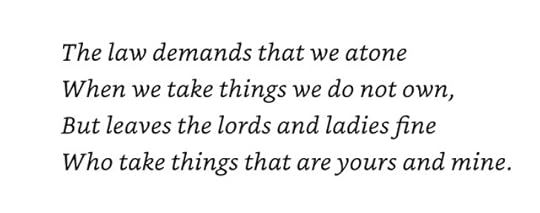 ALT
ALT
April 10, 2025
UPDATE: I’m delighted to say that this class now has been confirmed for Summer 2025!
The Dystopian TraditionUPDATE: I’m delighted to say that this class now has been confirmed for Summer 2025!My graduate course on the Dystopian Tradition will be offered again this summer online at Signum University if there’s sufficient interest. I hope the class will make, because it seems more relevant than ever.
ALT
The Dystopian Tradition - Signum University
March 29, 2025
“In particular, the researchers focused on a concept called ‘identification with all humanity.’ This…
Science fiction may help foster a sense of global solidarity by evoking awe, study finds
“In particular, the researchers focused on a concept called ‘identification with all humanity.’ This refers to how much individuals feel connected to all people, regardless of nationality, race, or background. It reflects a broad, inclusive identity that supports concern for others around the globe. Previous studies have linked this identification to prosocial behaviors such as donating to international causes, supporting refugees, and caring about the environment. The authors theorized that science fiction, with its imaginative worlds and frequent focus on humanity’s shared future, might encourage people to adopt this global perspective.”
March 18, 2025
Happy Sunrise on the Reaping Day!
To celebrate, here is my new talk for the University of Louisville: “Why You Should Read The Hunger Games.”
March 10, 2025
The Dystopian Tradition
My graduate course on the Dystopian Tradition will be offered again this summer online at Signum University if there’s sufficient interest. I hope the class will make, because it seems more relevant than ever.
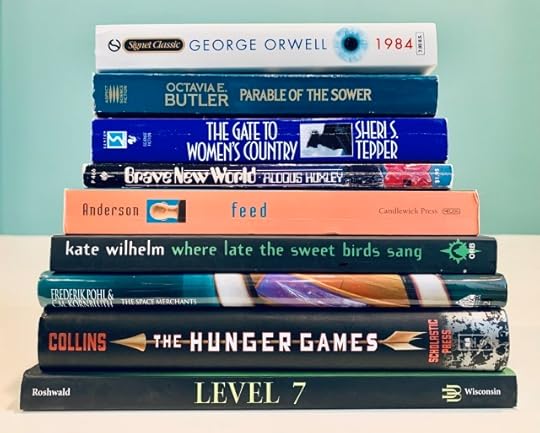 ALT
ALT



